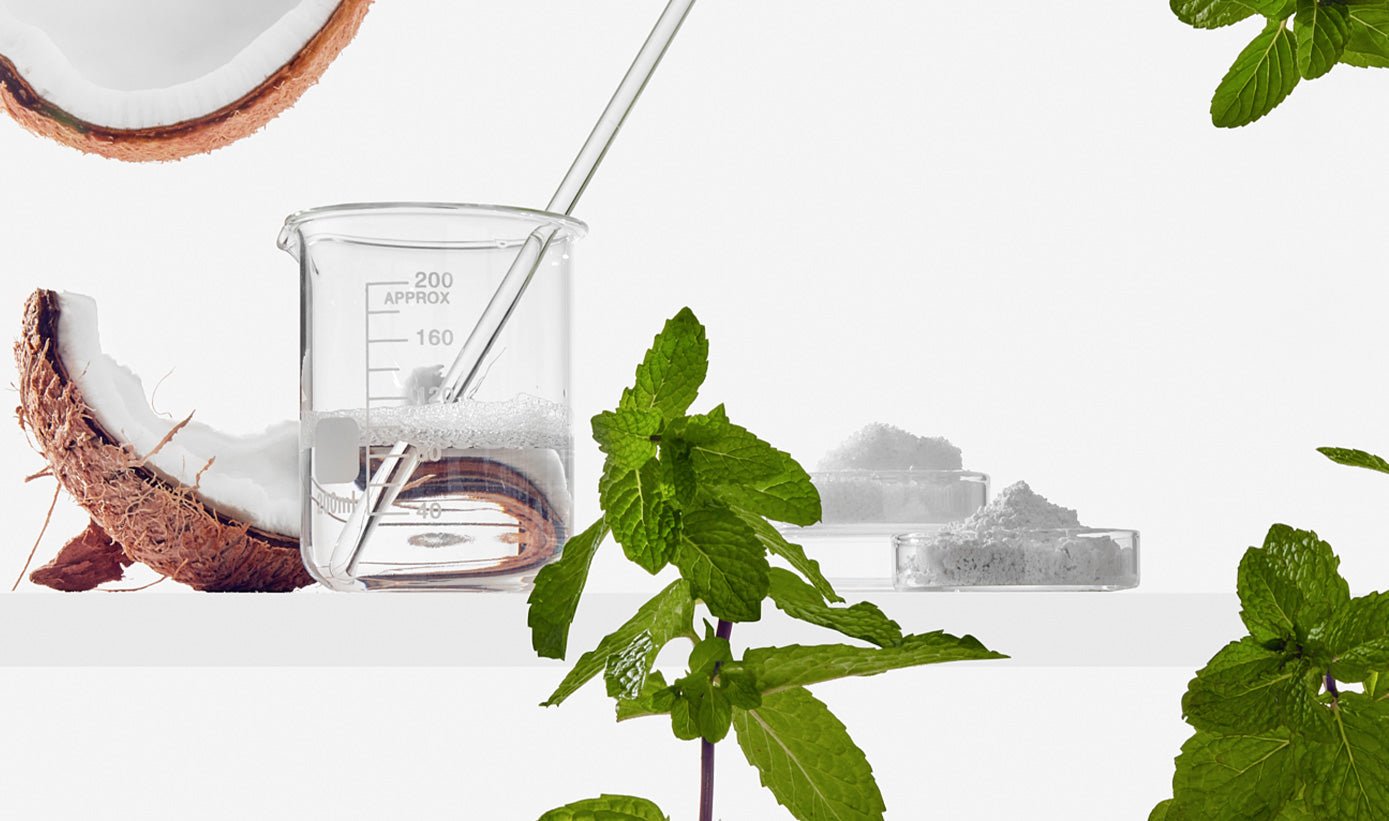Don’t worry, we get it. You absolutely love the minty fresh feeling you get right after you swish around your favorite mouthwash. You even love that slight burning, tingling sensation you get from the alcohol in the mouthwash. After all, it serves as “proof” that your mouth is as clean as it can get.
But what if it isn’t? What if there’s a way to get your mouth feeling even cleaner...without any of the adverse side effects of alcohol-containing, chemical-containing mouthwash?
We’re here to reassure you: you can still get that ridiculously-clean feeling using more natural methods. Swishing with alcohol free mouthwash can help you achieve your freshest-feeling mouth without any harsh chemicals. And it can do so while actually nourishing your delicate oral microbiome to promote overall health far beyond your mouth.
alcohol vs alcohol free mouthwash
Okay, so one has alcohol in it and the other doesn’t. What’s the big deal? For your oral health, this small difference can have big impacts.
alcohol-containing mouthwash
Many alcohol-containing mouthwash contains over 25% alcohol. The “alcohol” in the mouthwash is actually ethanol (the same substance in alcoholic beverages), and it’s known to cause its fair share of harm. It’s also worth noting that ethanol is toxic to the human body, which is why reducing or eliminating alcohol consumption is common health advice. Now, why would we want to swish the same substance around in our mouths every single day? Personally, we don’t want to, and we’ve outlined why below.
- bacteria balance: alcohol disrupts the delicate balance of bacteria in your oral microbiome. This balance is essential for a healthy gut and so much more (we’ll dive deeper into that in a bit).
- glaring warnings: many alcohol-containing mouthwashes feature use restrictions on the bottle, such as strictly using the mouthwash for a maximum of twice per day. You’ll also find warnings like, “Do Not Swallow.” “Keep out of reach of children.” “If more than used for rinsing is accidentally swallowed, get medical help or contact a Poison Control Center right away.” Personally, these are not messages we wish to see on an item we use daily!
- general discomfort: those of you who have tried alcohol-containing mouthwash might be aware of the burning, tingling, itching, and “peeling” feeling that can occur in your mouth with regular use.
- dry mouth: that “peeling” feeling might be an indication of dry mouth, a very uncomfortable condition. Alcohol is known to cause dry mouth, which can actually promote bacteria growth. Isn’t that the opposite of the goal?
- mouth ulcers: “overuse” of alcohol-containing mouthwash can also cause mouth ulcers, which are uncomfortable sores on the inner cheeks, roof of your mouth, gums, or tongue.
So, is it worth it? Read on to find out how (the right) alcohol free mouthwash can give you the clean you want and deserve...without these nasty side effects.
is alcohol free mouthwash better?
Simply switching to an alcohol free mouthwash can eliminate many of the concerns listed above. But let’s not forget that “alcohol free mouthwash” is an umbrella term that includes any mouthwash that simply doesn’t contain alcohol.
In other words, when it comes to the question “Is alcohol free mouthwash better,” the answer is not a simple yes or no… it’s more of a, “yes, as long as…” That’s because alcohol isn’t the only questionable mouthwash ingredient out there. So let’s dive into a few more.
other questionable mouthwash ingredients outside of alcohol
Not every alcohol free mouthwash is free of concern. Here are some “red flag” additives and ingredients to look out for.
- artificial dyes: these give conventional mouthwash its blue, green, and purple hues.
- artificial flavors: these chemical flavorings are often unsafe to ingest.
- chlorhexidine: this antiseptic ingredient is often found in prescription mouthwash, but research shows it can alter your mouth’s pH. This can weaken your enamel and make your mouth more susceptible to tooth decay, and it can also impact cardiovascular health.
- chlorine dioxide: this bleaching agent has been classified as a “hazardous gas” by the CDC.
- poloxamer 407: research has found that this detergent decreases blood flow in animals, and there’s enough research regarding how it affects humans.
- hydrogen peroxide: many whitening mouthwash formulas contain hydrogen peroxide, a chemical bleaching agent known to release free radicals as it works...leading to uncomfortable sensitivity and harmful enamel damage.
Let’s meet some of the incredible organisms that help your oral microbiome (and beyond) thrive.
meet your oral microbiome, an incredible world of its own
You may have seen striking claims from conventional, alcohol-containing mouthwash: “Kills 99.9% of germs that cause bad breath, plaque & gingivitis.” But what about all of the incredibly important bacteria that naturally fight off the bad bacteria, aid in digestion, and maintain a healthy gut? (All of which, by the way, play a huge role in nurturing your mental, emotional, and physical health.)
Let’s take a moment to meet these elusive “good” bacteria.
- streptococcus salivarius k12: fights off bad bacteria and candida and helps your mouth maintain a healthy pH, naturally
- streptococcus a12: work to fight cavity-causing bacteria (S. mutans)
- lactobacillus: these bacteria are known to help protect against gum disease
- bifidobacterium: help your body digest dietary fiber while releasing vitamins and aiding your immune system
The right alcohol free mouthwash can (1) nurture these good bacteria and (2) help them in their mission to fight off bad bacteria. That brings us to the question, which one is the best alcohol free mouthwash?







